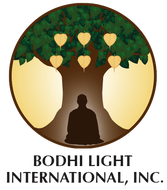 In a previous lifetime, Ananda was once a newly appointed king who had so many people in his court asking favors of him, that he came and asked a wise cultivator, who was a previous incarnation of the Buddha, “How can I recognize whether someone is a friend or a foe?” The Buddha then gave him the following list of sixteen deeds that reveal when someone is your foe:
“If you see or hear someone perform any of these sixteen deeds,” the Buddha told the king, “then he or she is your foe, and not your friend.” The Buddha then continued by giving the king a corresponding list of deeds that indicate someone is your friend:
To this list, I might add that a friend will not speak ill of you to others behind your back, and will only point out your flaws to you privately, in person. Although it can be helpful to know who our friends are and who our enemies are, it is important to remember that, from the Buddhist’s perspective, we should not grasp at either friends or foes. Someone wonders what if there are people who sometimes do the deeds of a friend, and sometimes those of a foe? In this case, you may have to trust your gut feeling as to which of their actions are most significant. And ultimately, time will tell who is a true friend and who is a true foe. There is a Vietnamese proverb: “You need to stay up late to know how long the night is.” In other words, when you know someone long enough, you will become very familiar with how they act, which ultimately is the best indicator of their true character. Another person asks: “According to Buddhism, isn’t everyone your friend?” Answer: “No! The demons are not your friends. If you recognize a demon, run!” Very often your closest friends, those who you depend on the most, turn out to be demons that obstruct your cultivation. When you recognize your enemy, do you run? Actually, that’s not what a good cultivator would do. Rather, one should draw near one’s enemies and try to help them become better people. For instance, do you want to know how to help those who are two-faced and deceptive? You have to draw near them and be prepared to let them hurt you. The Buddha himself is a good example of this. Just before the he became enlightened, and after the he defeated the demon king’s armies, the demon king sent his beautiful daughters to tempt the Buddha. But the Buddha quickly turned them away by pointing out that they are no more than “stinking skin bags”. As a result, the demon king became curious how the Buddha could remain unmoved by all his attacks and temptations, and he went to visit the Buddha, wondering whether the Buddha knew something that he did not. The Buddha took this opportunity to speak Dharma for the demon king, who was then able to attain First Stage Arhatship. Here we see how, by patiently enduring his attacks, the Buddha was eventually able to help the demon king. Thus, sometimes you have to let people hurt you before you can teach them. There is a price to pay for helping others. |
|
RELATED LINKS© 2010 – 2023 Chanpureland.org
|
SubscribeJoin our mailing list today!
|

 RSS Feed
RSS Feed